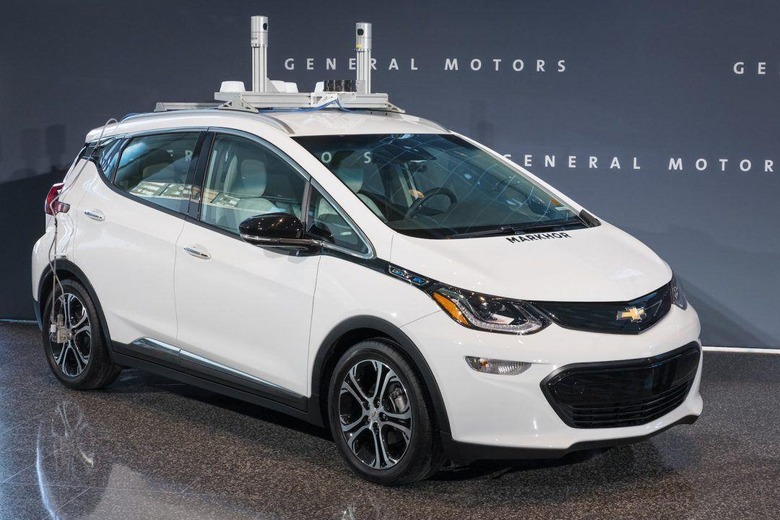Chevrolet Plans "Thousands" Of Autonomous Bolt EV From 2018 Say Insiders
Chevrolet is readying a fleet of "thousands" of self-driving cars, the majority of which will be used by Lyft as autonomous taxi alternatives, insiders have claimed. General Motors had previously invested half a billion dollars into the ride-sharing firm, with the intention of co-developing self-driving vehicles that could be added to its fleet. In the meantime, GM also launched its own car-sharing scheme, Maven.
GM already has around forty prototype autonomous cars on public roads in trials. Modified from the company's new Bolt EV all-electric hatchback, the so-called "Bolt AV" vehicles are currently being tested in San Francisco, CA, and Scottsdale, AZ. They were built using technology GM acquired when it bought Cruise Automation early last year.
Now, according to two sources speaking to Reuters, the fleet is going to expand dramatically. Still consisting of Bolt AV cars, it'll eventually number "thousands" the insiders say, with deliveries kicking off in 2018. If true, that would make it one of the earliest large-scale autonomous projects in the industry.
Lyft has declined to comment, and a General Motors spokesperson was keeping things clandestine. "We do not provide specific details on potential future products or technology rollout plans," they pointed out regarding the rumors. "We have said that our AV technology will appear in an on-demand ride sharing network application sooner than you might think."

For the time being, the only way to get your hands on a Bolt AV will be to hail a ride in the app. According to the leaks, there are no plans to offer the vehicles to individual buyers, in no small part because they're expected to command six-figure price tags. A regular, non-autonomous Bolt EV starts at around $36,620, though state and federal subsidies and credits can bring that figure down to under $30k.
Last September, Lyft predicted that by 2021 the majority of rides taking place through its network would be carried out within a self-driving car. That would be good news for an automaker selling such vehicles to the firm, though not all of the ride-sharing company's expectations might be quite so well-received. Lyft co-founder John Zimmer also suggested that he believes private car ownership will, for the most part, dry up in the US by 2025.
NOW READ: 2017 Chevrolet Bolt EV first drive
GM has proved to be a vocal advocate of autonomous driving, warning US lawmakers recently that by dragging their feet on driverless car regulations they were risking thousands of unnecessary road-traffic-related deaths. It's not, of course, the only automaker involved in such trials. Uber announced earlier this month that it would be opening its platform to self-driving Mercedes-Benz vehicles, while only last week Ford announced it was investing $1bn into startup Argo AI, formed by former Google and Uber engineers with the goal of developing an artificial intelligence for autonomous cars.
SOURCE Reuters
